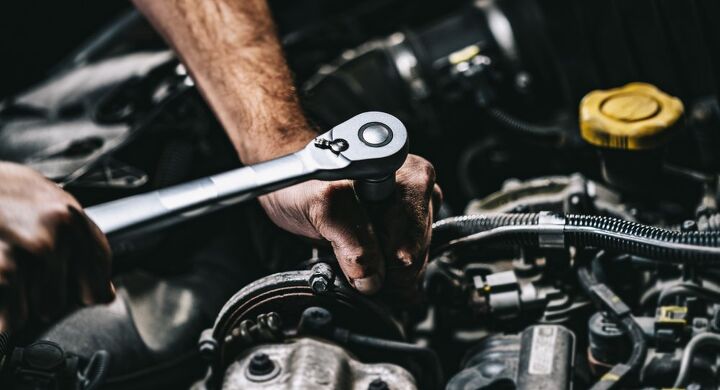#ResearchPapers
Study Suggests Time Plays Important Factor in Repair Costs for EVs Vs ICEs
Since the hottest news surrounding the automotive industry today happens to be rolling updates about supply shortages, factory downtime, and how it’s not impacting manufacturing profits as much as anticipated, I’ve been diving back into studies and research pertaining to the future of the automotive industry. It’s a little more enjoyable for my own gray matter to process and might provide readers with a touch more to ponder than another story about how automakers are stalling production because an insufficient number of doodads were placed on a boat that’s waiting off the California coastline.
Earlier this week, we examined research exploring how much electric vehicles actually cost to run and that theme will persist. There’s a new study suggesting EVs boast lower repair bills than gasoline-driven alternatives. But there’s an interesting tipping point that occurs early in a vehicle’s lifespan that makes it happen. Before that, it’s cheaper on average to maintain something equipped with an internal combustion engine.
Study: Do EVs Really Cost Less to Run Than Internal Combustion Cars?
With the volume having been turned down on just about every business sector imaginable, automakers have spent most of this year explaining how supply chain shortages are impacting production and making promises about electric vehicles. However, the rhetoric surrounding electrification has gotten so aggressive that it’s fast becoming another contentious issue, leading to vicious arguments as people square up to take sides. Part of this is due to the enterprising way in which zero-emission vehicles are being marketed and subsequently embraced by world leaders that don’t know jack about the manufacturing or the environment. Much of the discourse surrounding electrification (pro or con) lacks nuance and leads to businesses promising whatever they can in an effort to obtain your unquestioning belief.
For example, EVs are frequently promoted as boasting substantially lower operating costs due to there being no reliance on liquid fuel. Though finding the truth actually requires one to make a comparative analysis while taking into account how, where, and what you’re driving. There’s even a new study out from the Anderson Economic Group (AEG) attempting to determine the true savings of swapping to an EV where the researchers ultimately decided gasoline-powered cars were actually easier on the wallet. However, that likewise requires loads of clarifying context and conditional factors.

















Recent Comments